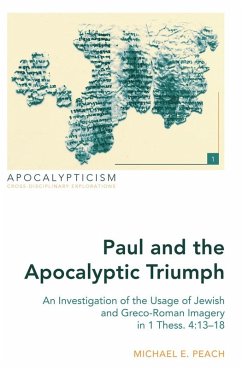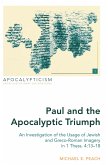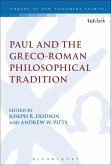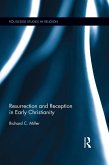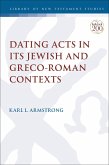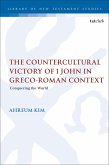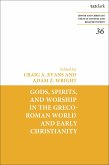Michael E. Peach provides a fresh examination of imagery in 1 Thess. 4:13-18 arguing that Paul synthesizes both the Jewish and Greco-Roman imagery. With careful analysis, Peach traces the history of interpretation of Pauline eschatology finding patterns of thought concerning the source of inspiration of Paul's use of imagery. Utilizing these patterns, the author further examines the meaning and function of four images employed by Paul: «a loud command,» «the sound of an archangel,» «the trumpet of God,» and «the meeting of the Lord.» Ultimately, Peach's discoveries demonstrate that Paul synthesizes apocalyptic and Greco-Roman triumph imagery to create a dramatic mosaic of the apocalyptic triumph, the parousia of Jesus Christ.
Dieser Download kann aus rechtlichen Gründen nur mit Rechnungsadresse in A, B, BG, CY, CZ, D, DK, EW, E, FIN, F, GR, HR, H, IRL, I, LT, L, LR, M, NL, PL, P, R, S, SLO, SK ausgeliefert werden.
(Roy E. Ciampa, Manager of Biblical Scholarship and Integrated Training, Nida Institute, American Bible Society, Philadelphia, Pennsylvania)
«I am happy to commend Michael E. Peach's work on 1 Thessalonians 4. This book adds to the knowledge of Paul's letters through its painstaking analysis of the passage. The lexical work in particular gives valuable historical background to the seminal Pauline text. Readers will also benefit from the survey on Paul and apocalyptic thought provided at the beginning of the work.»
(Sean M. McDonough, Professor of New Testament, Gordon-Conwell Theological Seminary, South Hamilton, Massachusetts)

